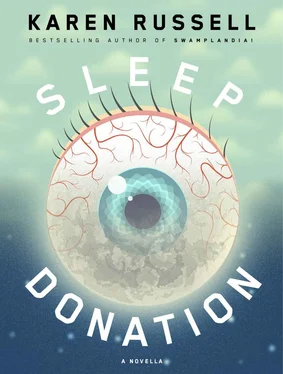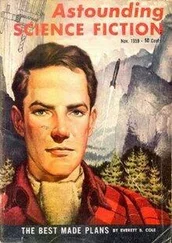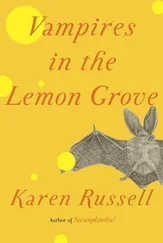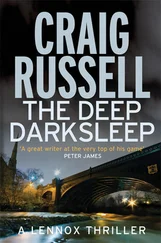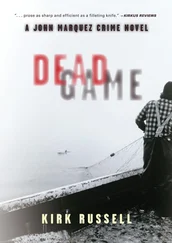But this does not halt the proliferation of paranoiac theories regarding motive, transmission.
It feels like a moment in history. Even in the present, you get that shivery sense, watching the greenish footage of Flight 109 parked on the tarmac, the circular door to this winged hospice opening and releasing the victims of the outbreak down spindly stairs. “You look like you’ve seen a ghost” —this expression I’ve known since childhood, and never once had the occasion to use. These descending people on the TV screen look like they’ve seen worse. Several older men are crying, their shoulders hiccuping up and down under the red Slumber Corps blankets. In the hospital, they won’t pull their heads through the teal pajama holes. They don’t dare blink. They pry the lids open with thumb and forefinger; some beg for stitches, tape.
The doctors are calling them “elective insomniacs.”
The doctors have begun to forcibly sedate some of these patients, at their request, since they are incapable of mastering their terror of sleep.
The goal of the electives: to stay conscious. To never again cycle into REM.
And then we learn that the passengers of Flight 109 are not the only ones: hundreds of other victims of the Donor Y contagion are refusing to sleep.
It’s startling how quickly their arrival changes everything for us.
People are confused by the new taxonomy of insomnia: Wait, these twenty insomniacs make a full recovery in Cuba, they have one bad dream, and they give up on sleep for good ? So they are infected with a nightmare; what in God’s name could be so frightening that death seems preferable to sleeping? What are they seeing, at night?
Newspapers are not even printing descriptions of the Donor Y nightmare. There is great concern that readers will convert the words into a copycat dream, causing waves of hypochondria, mass hysteria. As a protection, this press embargo strikes me as unnecessary —none of the infected patients can tell us anything of substance about the Donor Y nightmare, even after experiencing it for dozens of nights in a row. As one infected woman explains in a radio interview, the Donor Y nightmare does not translate into “upstairs language.” Her speech was cold and precise, the words crisply etched against the silence, so that when I closed my eyes what I saw was not the dream but snowflakes, these soluble blue skeletons falling through space. What she could say about the dream melted quickly away, like a visitation from another world entirely.
Doctors at the sleep clinics are working with teams of psychiatrists at the VA hospitals, hoping to replicate their success at getting PTSD-afflicted veterans to “risk” a night’s sleep. As far as elective insomnia goes, that’s our closest precedent: war veterans who are afraid to sleep, who dread their nightly redeployment to the Mekong Delta or Kabul, and the wet red scenes that might recur in dreams while they are trapped behind their eyelids.
The horrible symmetry of the reversal is rich fodder for late-night TV comedians, jowly theologians, the news anchors with their sibilant pity, their masks of skin and hair. Ratings spike. Panic spikes. Windows shine late into the night, every home in America shingled in yellow rectangles of light, until it seems like entire neighborhoods are having allergic reactions to the Donor Y crisis; even people with no history of insomnia or dream transfusions are suddenly frightened to crawl into bed.
The National Sleep Bank establishes a hotline for concerned citizens.
Callers accuse any human volunteer who answers in a breathless singsong, like betrayed children: “You said this couldn’t happen!”
If we failed, admits Dr. Peebles, it was a failure of imagination. Contagion itself: early on, we foresaw this as a danger. We took the appropriate precautions. After early clinical trials of Gould’s machine showed certain nightmare-prions could be passed from body to body, every laboratory in the country joined forces. New tests got developed: sleep-assays, dream immunoblots. All donated sleep in this country is subjected to a rigorous screening and purification process.
But this specific outcome of a nightmare-contagion? “Elective insomnia”? This was unforeseeable. This was unpreventable. Who alive could have guessed that one San Diego man’s bad dream —no matter how frightening —could make patients nostalgic for their insomnia?
A new mental illness, some psychiatrists are eager to label it.
A kind of extreme sleep-anorexia.
“Iatrogenic”: a word that sends me to the dictionary. More deadpan comedy: it means our “lifesaving” transfusions have provoked a secondary insomnia. The cure is worse than the disease.
Some begin to speculate: Was this done by design? Is Donor Y a new kind of bioterrorist, who co-opted Gould’s technology to stage an attack?
Some are beginning to believe he is the actual ungulate. The red-horned devil himself.
I’m so stunned that when I answer calls, my mind’s a blank. I let my mouth reel off the Corps’ press release: “Now, more than ever before, the world needs your gift of sleep.”
Elsewhere, the elective insomniacs are taking increasingly drastic measures to escape the REM-cycle. They latch their eyeballs open, a Clockwork Orange self-torture. Abuse amphetamines. The most desperate electives will not seek treatment in the hospital, preferring instead the slow, excruciating death of sleep refusal. “Opting out,” Jim calls this.
Breaking news: several of the Flight 109 passengers receive emergency transfusions spun out of the Baby A donations, and doctors make yet another discovery. Shock-deliveries of Baby A’s untainted sleep can flush such nightmares out of the system. Glad tidings for the world, at last. A Van screams over to the Harkonnen residence. More panacea-sleep gets pumped out of her.
Within a twenty-four-hour span, the seven infected passengers who receive a transfusion of Baby A’s sleep are cleared of the Donor Y nightmare.
The Baby A miracle is cheered by everyone, everywhere, with the powerful exception of our star donor’s father. Felix Harkonnen, on receiving the news that his daughter’s transfusions can eradicate Donor Y’s contagious nightmare: “They need her sleep, too? All of these new people? My God, can’t you folks find another body to snatch here? Another of these universal donors? You’re telling me my kid’s the only one?” We both picture her then: somebody else’s daughter, playing Wiffle ball, riding her yellow bike to school, sleeping like a champ. “Go scout new talent, why don’t you?” he growled. “Scour the nursing homes. Find a hundred-year-old man. I don’t want my daughter’s first birthday to be in a Sleep Van.”
Baby A’s supply cannot meet the increased demand. Her tiny body can produce only so many hours of sleep per week. Hundreds less than we need, it turns out, at the Sleep Banks.
When I schedule my next visit to 330 °Cedar Ridge Parkway, I am deliberate about choosing a time when I know that Felix Harkonnen will not be home. Mrs. Harkonnen invites me in. She brings out a plate of sugar cookies and switches the television on, which permits us to crouch like spies on the orange sofa and whisper to one another, safely enclosed inside a bubble of background noise.
“Tell me about your sister,” says Mrs. Harkonnen.
“You want to hear it again?”
“Can you stand to tell it again?”
“Okay.”
I am certain that Mrs. Harkonnen has no desire to hear another word about Dori; she is pushing me to make some reciprocal give, I think. Asking for a trade.
“Go on —” she prods. “I’m all ears.”
Читать дальше
